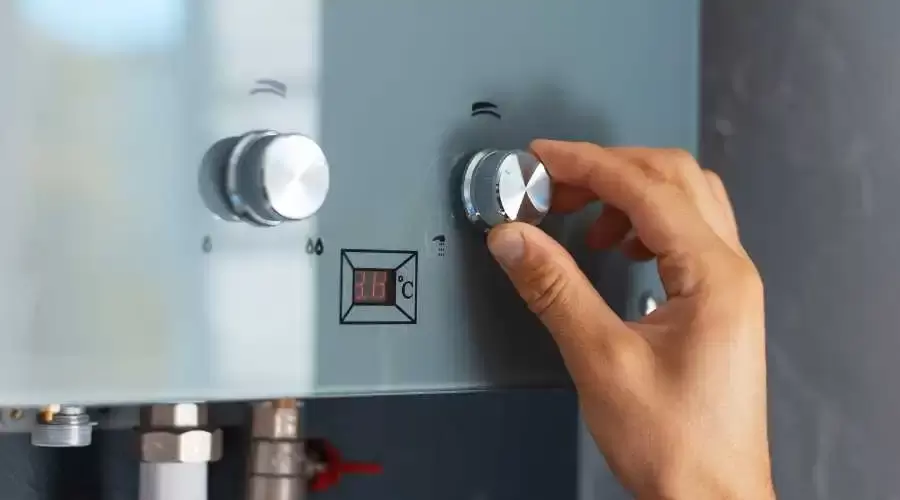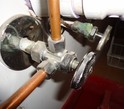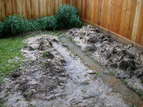|
In order to heat your home, boilers transform energy from gas, oil, or electricity into heat. A boiler typically heats the radiator system, but it can also act as a water heater for your fixtures and appliances. Boilers are durable pieces of equipment, although their lifespan is just 15 to 20 years. Use our cost guide to learn about the procedure and get an estimate of what you would pay if you need to replace your old, worn-out boiler with a newer, more efficient unit. Cost of Replacing a Boiler
Consumer Reports states that the typical price to replace a boiler is $7,938. You might spend anywhere from $4,290 and $10,070 for a boiler, with the following factors affecting price:
Cost of Replacing a Boiler by Size The quantity of heat energy that a machine is capable of producing is measured in BTUs, or British thermal units, when determining the size of a boiler. Your home's square footage is one consideration in determining the size of the boiler you require, but you also need to consider your climate. Multiply the square footage of your property by the following numbers to get an approximate estimate of the size boiler you require:
Use a multiplier that is closer to the lower end of the range if your house is more recent, well-insulated, and energy-efficient. Choosing the greater value is a good idea if your house is older and inadequately insulated. For instance, a 2,000 square foot, contemporary home in Virginia definitely needs a boiler that can produce 60,000 BTU. Cost of Replacing a Boiler by Fuel Type The majority of homes in the Northeastern United States use propane or natural gas to power their boilers, but some also use heating oil that is kept in an oil tank close by. Some boilers use electricity less frequently. Despite having a low capacity and being expensive to operate, electric boilers are typically only found in warm climates or utilized as secondary heating in homes with another central heating system. Although they are uncommon, certain rural regions still have access to wood boilers. Cost of Replacing a Boiler by Brand It is challenging to find pricing information other than installation costs for the most well-known boiler manufacturers because they primarily sell to contractors rather than consumers. Cost of Replacing a Boiler by System Type Residential boilers can be categorized according to the method they heat and store water, in addition to the fuel type and manufacturer. Boilers can be classified as conventional, system, or combination (combi) boilers based on how they store water. To generate heat, they can use steam or hot water. In contrast to boilers with normal efficiency and non-condensing technology, the majority of high-efficiency types are condensing boilers. Here is how these divisions affect boiler pricing; we'll go into more detail about them later. Remember that a boiler may fall under more than one of these headings; an example would be a traditional, non-condensing steam boiler. Additional Determinants of Boiler Replacement Costs During the process, you can incur a number of extra costs in addition to the boiler's purchase price and labor costs to install it.
Various Boiler Types Since natural gas boilers are the most often used kinds, you'll typically find the widest diversity among them. They might fit into a few of the following groups. System, Conventional, and Combination Boilers Large and time-consuming to install, conventional boilers are the best option for larger homes. Two tanks—one for hot water and the other for cold water that needs to be heated—and a boiler unit make up a typical boiler. System boilers, on the other hand, only have one hot water storage tank and one boiler unit. They offer an excellent compromise between performance and efficiency for medium- to large-sized houses. Combination or combi boilers simply heat water as needed and do not have a tank. Despite the fact that the household water and boiler water go through separate pipelines, they integrate the functions of a boiler and a water heater. Although they are compact and economical, they have trouble simultaneously supplying hot water to multiple faucets or appliances. They are frequently utilized in little homes or apartments. Steam Boilers vs. Hot Water Steam and hot water boilers are two other categories of boilers. The latter heats water to a temperature of between 140 and 180 degrees Fahrenheit before pumping it through radiators, baseboard heaters, or radiant heating systems throughout the house. Hot water boilers provide better temperature control and increased energy efficiency. A steam boiler, in contrast, can actually heat water past the point of boiling and then transfer the steam directly into the house heating system. While using more energy to operate, these generate more heat. Boilers: Condensing vs. Non-Condensing Boilers can be condensing or non-condensing, to sum up. Because conventional boilers do not condense, some heat is lost through the venting of exhaust gasses. Condensing boilers are far more efficient and expensive since they capture this exhaust and use it for additional heating. High-Efficiency vs. Standard Boilers An annual fuel utilization efficiency (AFUE) rating, which represents the percentage of fuel energy converted into usable heat, is used to quantify heating efficiency. Older residences may still have boilers with an efficiency rating of 55%–75%, while new boilers must have an efficiency rating of 80% or above. High-efficiency boilers have AFUE values of 90% or greater. The best gas and propane models can achieve 98.5% efficiency, and electric boilers can operate at close to 100% efficiency. The maximum efficiency of an oil boiler is roughly 95%, and the average efficiency of a wood boiler is 90%. Condensing combi boilers are often the most efficient boilers. Although high-efficiency versions are typically more expensive up front, you will end up saving more money on heating over time. Sealed vs. Non-Sealed Boilers Non-sealed systems may be present in older boilers. As a result, a particular chimney liner is needed to vent exhaust through your home's flue, which serves as a funnel for smoke and waste gasses. Since there's a possibility that exhaust gasses like carbon monoxide could unintentionally leak within, this could be hazardous. Due to the fact that they consume already heated air and exhaust heat, they are also less efficient. Selecting a sealed boiler that draws air from the outside and reuses exhaust heat is safer and more cost-effective. Signs Your Boiler Needs to be Replaced You'll want to keep repairing your old boiler for as long as you can because buying a new boiler is pricey. According to the common rule of thumb, if the sum of the age of your boiler and the cost of repairing it is greater than 5,000, it's probably time to replace it. The following are some indicators that you should set up a new boiler:
Boiler Replacement Procedure If your boiler needs to be changed, an HVAC professional will approach the job as follows.
DIY Boiler Replacement Cost Boiler installation is not a do-it-yourself (DIY) project. In fact, installing a boiler requires an HVAC license in the majority of states. Without this license, no one will be granted a permit in these states, and a boiler installed by an unlicensed contractor won't pass inspection. Boiler Replacement: Do It Yourself vs. Hiring a Pro Simply simply, hiring professionals should be done when replacing a boiler. Boilers are best installed or replaced by professionals for your safety and the life of your home's heating system because they are enormous, sophisticated appliances that connect to plumbing and frequently gas lines. The good news is that working with a certified installer typically results in you getting a better deal on the boiler itself. How to Reduce the Cost of Replacement Boilers The cost of replacing a boiler is high. Here are a few ideas for cutting expenses.
Final Thoughts Boiler installation is not a DIY project. In order to even buy a boiler, homeowners frequently need to go via an HVAC contractor, so get in touch with a few to see what they have to offer. We advise speaking with at least three HVAC experts to learn about your alternatives. They may respond to your queries and aid you in determining which model will best suit the requirements of your house.
0 Comments
Leave a Reply. |
Archives
March 2024
Categories
All
|
- Plumbers / Drain Service
-
Plumbing Services
- Boiler Repair - Replace
- Clogged Drains and Sewer Lines
- Faucet Replacement
- Elizabeth Furnace Installation & Replacement
- Furnace Service & Maintenance
- General Plumbing Repairs
- Heat Pump Service & Maintenance
- Hot Water Heater Repair Replace
- Humidity Control & Dehumidification
- New Supply and Drain Lines
- Toilet and Vanity Replacement
- About Us
- Privacy Policy
- Contact Us
-
Areas We Service
- Plumber Bayonne
- Plumber Belleville
- Plumber Carlstadt
- Plumber Edgewater
- Plumber Hoboken
- Plumber Jersey City
- Plumber Kearny
- Plumber Lodi
- Plumber Lyndhurst
- Plumber Newark
- Plumber North Arlington
- Plumber North Bergen
- Plumber Palisades Park
- Plumber Ridgefield Park
- Plumber Rutherford
- Plumber Secaucus
- Plumber Teaneck
- Plumber Union City
- Plumber West New York
- Plumber Weehawken
- Blog
|
Elizabeth Plumbers and Drain Service

162 Elmora Ave. #323
Elizabeth, NJ 07202 elizabethdrainservice@gmail.com www.elizabethdrainservice.com (908) 988-0365 |
Elizabeth Drain Service is a full service and licensed plumbing contractor that specializes in drain clearing and sewer backups and repairs. Call us today if you have any plumbing needs.
|


 RSS Feed
RSS Feed



